For our very first project as the member of the Graduate School
Research Board (GSRB), a delegation composed of six members of GSRB
flew to Prague to participate in the 10th International Youth
Leadership Conference. We took off to Prague first thing in the
morning on New Year’s Day, most of us still half crazed with the
residual festive energy from last evening’s New Year’s Eve bash.
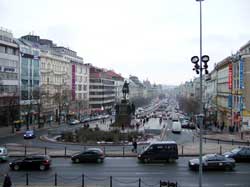 
The International Youth Leadership Conference was an arena that
provided a unique platform for a cross-cultural exchange of youth ideas
concerning the future of world leadership. The conference
consisted of three major simulations, including a United Nations
Security Council crisis simulation, an International Criminal Court
crisis, and a European Parliament simulation.
The U.N Security Council crisis was based on a simulation crisis that
Iran had restarted a nuclear enrichment programme, after withdrawing
its signature from the non proliferation treaty, ending talks with US
and EU, and throwing out all the inspectors. Each participant was
given a role to play, and had to defend their position, regardless of
one’s personal views and opinions, and our goal was to lobby and get
support from other diplomats.
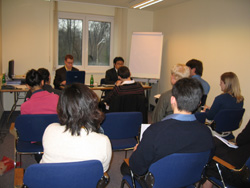 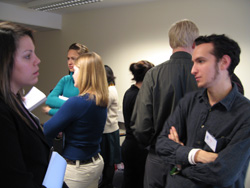
The second simulation was an ICC simulation. The case that was
examined involved the possible culpability of Sudanese President Omar
al-Bashir on charges of “war crimes” and “crimes against
humanity.” The objective of the pre-trial was to confirm or
reject the possibility that there were reasonable grounds to believe
that there was sufficient evidence that the person has committed a
court.
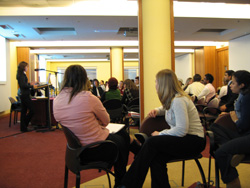 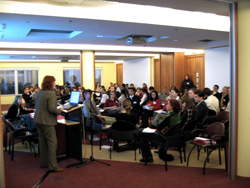
The last simulation, which involved all participants of the conference, was the European Parliament Simulation based on a EU directive on human trafficking. The participants formed political parties and had to create an amendment to the directive that reflected our party’s platform, support the amendment during hearings, and cast votes during the sitting of the house.
The activities represented real global issues, and participants were forced to make decisions and support positions that they ordinarily would have not. Through these roles, participants experienced in person that decisions are not only influenced by their own interests but are made as a result of communication and compromise with others. The exchange of different perspectives among participants from various nationalities and/or diverse background on certain issues also encouraged and pressured participants to approach various problems from various points of view.
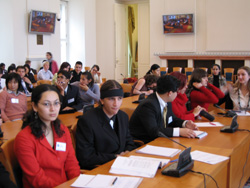 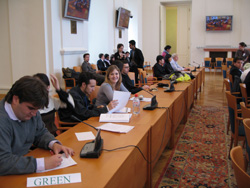
This conference became a great chance for all participants to realize
once again the importance of mutual understanding, respect for values
and ideas of someone from a different cultural or social background,
the importance of holding onto one’s ideals.
|
